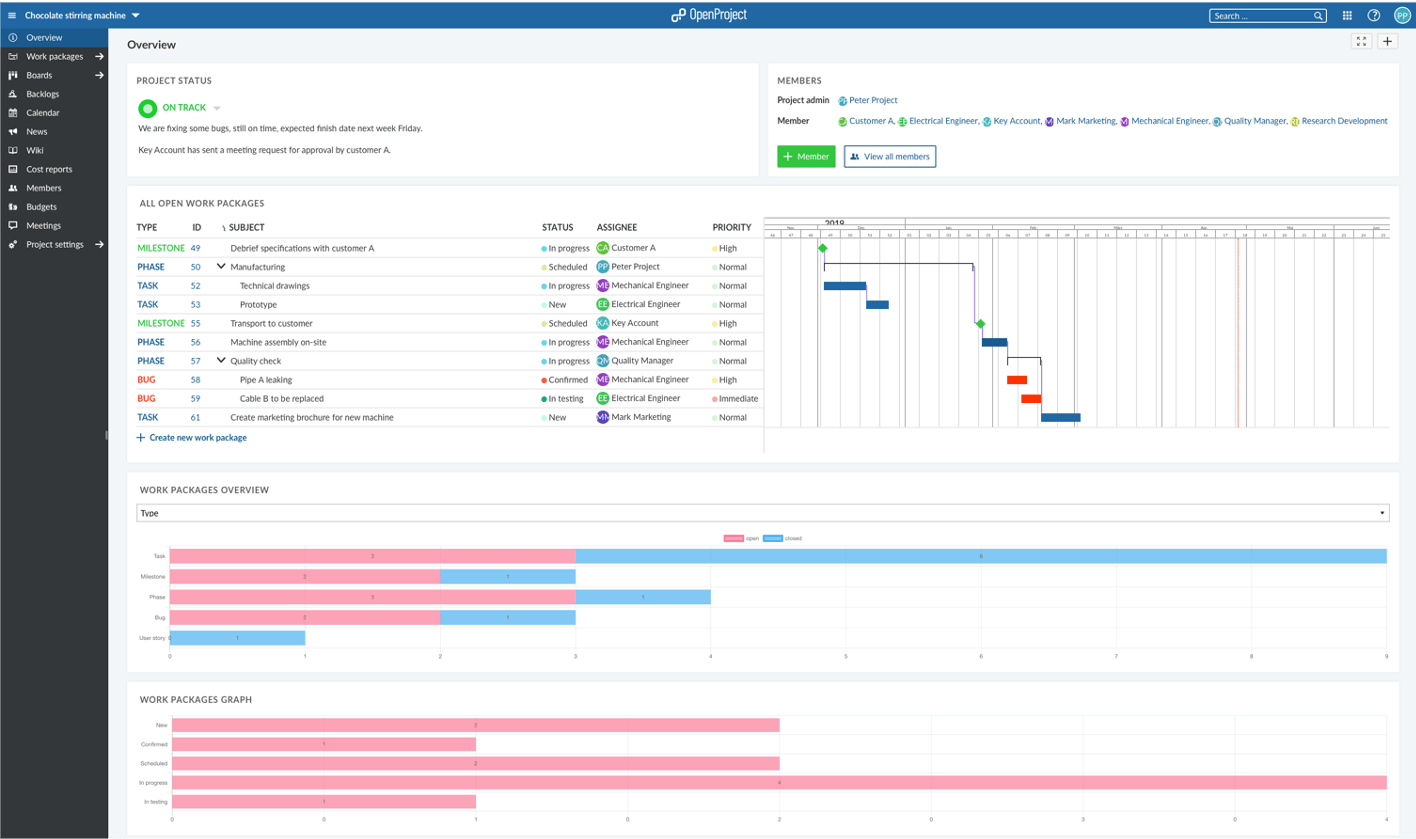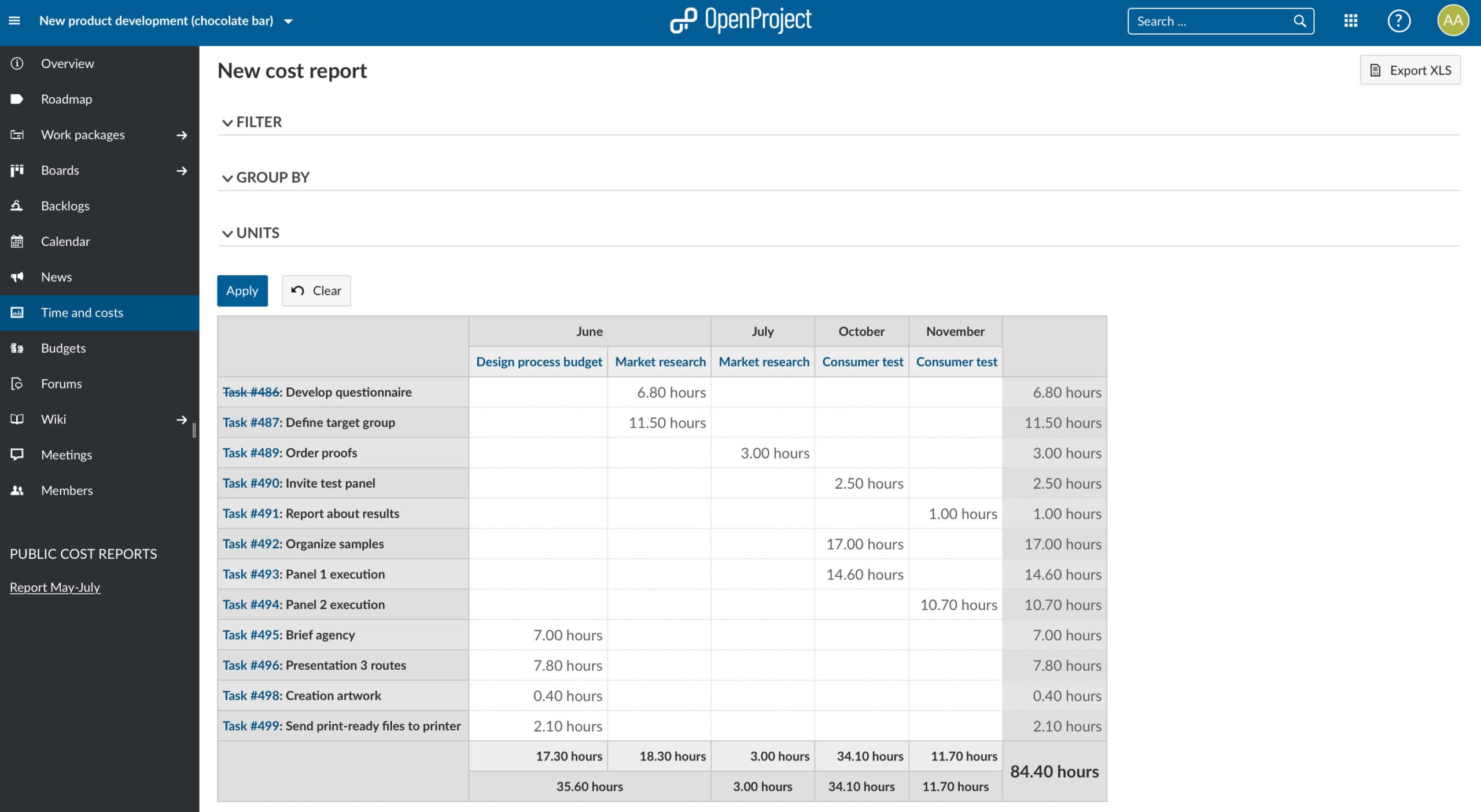
Time management in project management
The success of your project is always a function of time, quality and costs. How long do you take to finish the project, how good is the solution you come up with and how much resources did you use - these are the crucial parameters for the stakeholders. In line with this is the saying “time is money”: If you are managing a project, any time that you are behind schedule, will incur additional costs. Or the other way around, if you are able to reduce your project time, you will save costs. Thus, stakeholders will only approve the business case if the costs/schedule fall within the budget/timeline. If you want to read more about this, check out the PM² Alliance project management methodology (p. 34ff).
Consequently, time management is of high importance in project management.
What is time management in a project?
Time management is the management of the time spent on project work packages, i.e. the planning, scheduling, monitoring and controlling of all project activities. It is important across all project phases (initiation, planning, execution, closing). After setting up a timeline in the planning phase, it needs to be continuously monitored and adjusted according to changes due to internal or external factors.
Maximize the factor time when managing your project
In order to make best use of the given or planned time for your project, follow the next steps to allow for maximum efficiency.
1. Create a work breakdown structure
Break down your project into smaller components and assign relationships to these. Think about how much detail you know already and thus into how many small packages you can break the work down. Then, determine which of the work packages depend on one another and create parent-child relationships between them. OpenProject offers the work package table or agile boards to visualize your work breakdown structure.
2. Display the timeline in a Gantt chart
After having set up the work breakdown structure, the next step is to define a timeline by assigning individual start and finish dates for your work packages. The Gantt chart in OpenProject displays the project timeline for you. Also, you can add dependencies, predecessor or follower within the Gantt chart. Invite project team members to collaborate on the timeline to include their expertise as well.
3. Scheduling within your timeline
When creating the project timeline, you have different options on how to schedule work packages: The top-down approach aims at moving from the bigger tasks into smaller tasks, from the overall into the specific. It can be the case that the start and finish date are known but not all sub-tasks are known when planning the project. The bottom-up approach is – as the name suggests – the opposite of top-down. You plan from the detail to the bigger picture. Thus, this approach takes much more time in the planning phase. But in return it also generates the more accurate plan.
OpenProject allows you to switch between the different planning methods and combine both at any time just with a single click.
4. Control the progress
Once your timeline is created, it needs to be monitored. Review the progress and check updates to compare your actual work completed against the plan. This allows you to detect if there are areas you are behind.
With the project overview you can create your custom status dashboard to have all important information of a selected project at a glance. Choose between several widgets, including work package table, work packages overview and work packages graph.
At the same time you want to have an overview of what your project team members are working on and what they have accomplished. Use time reports to see what time has been logged to which work packages, which team member has worked on which work packages etc. Several filter options allow you to create custom reports. Besides reporting the hours you could also choose to display the value according to the hourly rate per team member.
Don’t hesitate to improve your project time management with the support of a project management software. Try OpenProject now 14 days for free.




